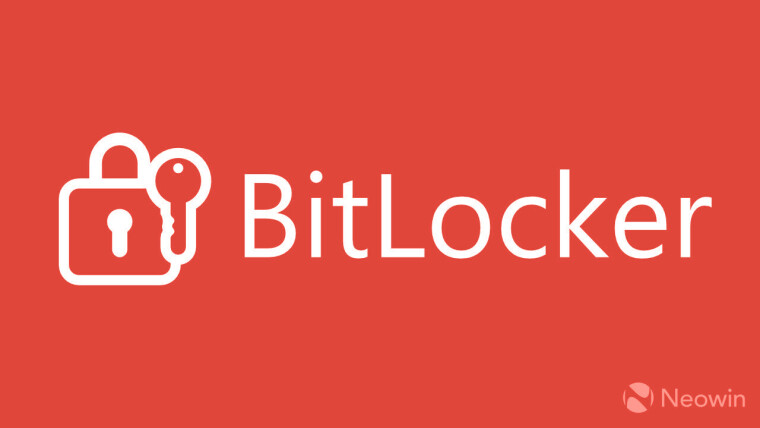
You can merge the choices and resolve the conflict: Microsoft users are dumb.
Clearly you’ve never used a Mac. It wasn’t until 2024 that you could snap windows, they have a built in dark mode but the word processor that ships with their computer requires you to use a dark page template if you want black background/white text, and lord forgive you if you want to take a screenshot.
I think the vibe is kind of “works for grandma out of the box“, “someone in the small-but-mighty dev community made an [open-source] app for that”
Yeah frustrates me too but seeing it as a kind of culture would probably help me be less frustrated
Then Apple gets tiny bits of occasional flak for Sherlocking
Apple is almost the tale of two companies.
From the software usability perspective, they have the “it just works” reputation and that might be true if you’re doing really basic stuff. I’ve found both windows and Linux to be much more user friendly if you want to do mildly advanced things.
Their hardware is generally pretty solid but comes at a premium, especially once you start talking about increasing RAM/SSD capacity. I have both a MacBook pro M3 pro and a Snapdragon X Elite Lenovo Yoga slim 7x. The 7x can give great battery life, but is much more inconsistent in doing so. On the other hand, the 7x has an amszing 3k OLED screen, has a removable m3 SSD, and you can upgrade to 32 GB of RAM for around $100.
What I find interesting is that a large swath of developers have macs. I get it for some use cases (ARM emulation on ARM vs doing it on x86), but it seems like it’s a bit of a status symbol for others.
Found the Linux user.
Not Arc though, they would have said so
Maybe he uses a Mac?
(I use arch BTW)
No.
(I use Tumbleweed btw).
Thanks?
The bot that posted this is not programmed to edit typos.
really interesting to see that they have more posts than comments
Really wish we didn’t have bots posting at all
ShitLocker
How are these people losing access to their MS accounts on their computers?
All the time, then people get ran around in circles, are given a too technical explanation and give up more often than not.
The encryption is not inherently a bad thing, but forcing people into account creation is where the trouble starts. With piss-poor customer support as the cherry on top, this should never be allowed.
I’d say it’s a bad thing because it’s the wrong threat model as a default.
More home users are in scenarios like “I spilled a can of Diet Sprite into my laptop, can someone yank the SSD and recover my cat pictures” than “Someone stole my laptop and has physical access to state secrets that Hegseth has yet to blurt on Twitch chat”. Encryption makes the first scenario a lot harder to easily recover from, and people with explicit high security needs should opt into it or have organization-managed configs.
“Someone stole my laptop and has physical access to state secrets that Hegseth has yet to blurt on Twitch chat”.
Thanks for making me laugh. It’s been a while.
That’s what the online MS account is for - your BitLocker encryption key is stored on your account that you can access from any web browser.
I agree, the encryption should be deliberate choice. And we’ve said nothing yet about the impact on performance.
You used to almost be forced to make a recovery CD or USB when encrypting a drive, now people don’t even know how ‘important’ the MS account actually is.
Step one, be forced to create a Microsoft account.
Step two, create the account with a password you are SURE you remember
Step three, create a PIN so you never have to enter your password
Step four, forget your password
Step 5, recover password?
That’s if the password recovery feature was set up properly.
Heaven forbid people take any personal responsibility.
I guess there is a password recovery feature with Microsoft accounts, but people don’t remember which email they signed up with?
Maybe it would help to read the initial reddit thread and not this article.
people don’t remember which email they signed up with
No. We are the top 5%-10% of users
You can still force local account. Edit: nevermind, first sentence of the article:
Earlier today, we published an article regarding Microsoft’s recent removal of the BYPASSNRO script and how it has irked Windows 11 users
Well, fuck.
On setup: Shift + F10 -> click into the CMD window (it opens unfocused)
cd oobe bypassnroAnd do not connect to network until you finish setup.
Disabling auto updates was also very simple and intuitive. Couldn’t be easier.
Meta + R -> Type gpedit.msc and press enter -> On left click Administrative templates -> All settings -> Configure Automatic Updates -> Select option 2, Enabled and Apply
I’m still creating local accounts using the bypass in the auto unattend file.
If a drive is crypto locked and there is only a local account, it might as well be wiped if nobody has a password.
Bypassnro is the old method, no longer working since 24H2. I’ve tested this method on GitHub and it works for normal AND S-mode devices.
- Ctrl + Shift + J before selecting secondary keyboard layout (sometimes you need to click on the outside borders of the form so the dev console pops up)
- Type this (can use autocomplete): WinJS.Application.restart(“ms-cxh://LOCALONLY”)
- Setup with local account
Most likely this is the #1 reason. When Passkeys will become more popular, that will be another problem for regular users unless there is an easy account recovery option.
Another possibility could be switching to local account and deleting MS account, but I would imagine that is more rare and most people would just abandon account. Then it can become the same issue with forgotten password though.
I’m in favor of a heavy handed push towards encryption, I think most people don’t realize how important this is (now more than ever), but windows should be guiding and educating on this not requiring, and it should have absolutely nothing to do with an email address or online account.
On a home PC, what for? The only data that really matters to be encrypted is my keepass database file. Giving the option is fine but I don’t think it should done without asking the user to choose.
That’s what I said.
Im unfortunate to live in a country where the police can now quite easily enter a residents home and take their computer and use any data on it against them. Encryption can at least slow their nefarious efforts. I think most people should utilize encryption.
I live in one where refusing to decrypt it for them results in a 2 year prison sentence.
And yes, if you forget you will still be charged.
I’m of the opinion that encryption based security should be compartmentalized. IE, an encrypted folder, or “safe” app. Safes in housing are already a concept that is already commonly known so it would be natural to extend a safe into the digital realm. This would also help in the idea that safes are locked with a key, so if the user loses their keys, whatever is inside the safe, might as well be lost.
Now if EVERYTHING is a safe, (always on encryption). People will never known the difference. Its a dangerous type of security that is likely to be more a loss than a benefit.
You are arguing for selective encryption, but I can’t really find any technical argument in your comment.
Whether we are speaking of encryption at transit or rest, there’s a general consensus that encrypting everything is best in every way except possibly performance for select cases.
For example, it allows hiding (meta)data about the really important bits, and with computers it’s really difficult to tell which bits of (meta)data could be combined to abuse. Tampering is a consideration as well.
But, houses have locks on the doors. The whole point of the house is to be a safe for people. Security is all about the threat model, your risk assessment should inform the security measures that make sense in the security/convenience continuum. Not everyone will be equally well served by the exact same risk mitigation methods.
The point of whole disk encryption is to delay or nullify physical device control. If your disk is not encrypted, but you have a single encrypted file a bad actor wants to access. If they get physical control, then it is game over. They have all the time and power in the world to crack down that one file. Now, most people don’t have any one file(s) like that, but instead are worried about their private life in general. Without encryption, physical access to the device means total access to their entire life, the house had no locks and the thieves just waltzed in and took everything of value. Whole disk encryption is opting for a sturdier door, with better locks. Physical control is still bad, but access is orders of magnitude harder. Sure, if you lose the only key to your house, you better be prepared to break windows or walls to get in, but that is a user responsibility.
For most folks they could just write down their encryption passphrase in a secure location with the rest of their papers since 99.9% of the risk is thieves stealing their laptops. For most folks the biggest secure item they have is the one they use constantly their browser and all the passwords it stores to all their services. You know the thing they use constantly.
A compartmentalized approach makes sense when the laptop contains really vulnerable data like laptops which have been stolen with bunches of client data on it or a journalists communication with confidential sources etc etc. In that case you STILL want to encrypt the whole thing but you want to separately encrypt the really important stuff with a different key so that every time you open your laptop to watch cat videos on youtube you aren’t also unlocking all the data you will have to tell your companies users you lost.
Your title is borked. Maybe edit that
It’s duplicated in case half of it is lost to Bitlocker
If they are still using windows, their privacy and data safety was never of importance to them, anyway.
Or just get the data back from the backups they made.
Data privacy != Documents/data on hard disk
If I have documents on my harddisk, they are private. If a windows 11 user has documents on their harddisk, they are not.
What do you smoke exactly?
I did not invent “recall”.
All of the data I actually care about is stored on a NAS and backed up in triplicate. The only data actually on my PC are program files.
I can’t access my home server at all right now. I needed a distraction from all the bullshit in the world so I intentionally made it unstable so I would always have a puzzle to solve. I have a backup but I only use it when the puzzle breaks. That’s the rule I made for myself.
This distraction certainly delivers.
Since when is Bitlocker required? None of my files are encrypted, and I’ve been using 11 since it came out.
It automatically encrypts the drive only if admin has a Microsoft account (to backup the key on their cloud servers for easier
LEO accessdata recovery) and the PC is a prebuiltIf one of the condition is not met, the automatic ransomware isn’t enabled
Every retail PC I’ve seen with win11 has bitlocker enabled. Screwed one over as they forgot their password…
Did you use Rufus? You can bypass Bitlocker. Or your machine does not have TPM 2.0 (which you can also bypass)…?
Yeah I used Rufus. Always do for every OS install. Explains it lol
Bitlocker encrypts your drive, not single files. Once the computer is booted up, it’s completely transparent to the user.
But my PC doesn’t even have a password. So how can my files be encrypted? I thought a password was manditory for file encryption to work.
You probably haven’t activate Bitlocker. Up until now it was optional with Windows. I would argue it isn’t necessary for a desktop computer at home, but you should seriously consider activating disk encryption for a laptop.
TPM keys, and without your knowledge
hearing about this was my final straw, thank god
I didn’t expect Windows to become THAT shit. Well it’s good for Linux I guess.
Yeah it can happen, when you force people without their consent encrypting their data.
Forcing people is one thing, not telling them its a thing is completely different. Most Windows users dont even know their Windows has bitlocker enabled and those keys are out of their sight
Isn’t that what Iphone and Android already do?
Different threat model and usage scenario. See the spilled milk comment.
Most people don’t have anything of importance on their phones. And the tuning options are almost absent on phones, so it is less problematic bug-wise.
For many, a mobile device is their sole computer, and things of importance to them are stored on it.
deleted by creator
Le banking app.
But THAT is recoverable EASILY, not like lost forever if you dont recover data from that phones storage.
Something like OTP are rather more important.
Well, I wasn’t talking about recovery, but need for encryption.
I guess thats true.
Yeah, nothing important. Just your banking apps, personal documents, photos, government apps, emails, all the services linked to your phone via mobile number, personal chats, work chats, 2fa codes, some other not important stuff. But at least it doesn’t have your games. Unless you play games on your phone, then you are fucked.
No you’re right, nobody has precious photos or videos on their phone 🙄
If they don’t save those photos somewhere else from time to time, it means those photos aren’t that important.
You’re assuming they actually understand proper data protection procedures. You have a very misplaced amount of faith in the knowledge of the average person. Plenty of people just expect stuff to work and are horrified when they realize they’re not.
I saw that all the time when I worked in mobile phone sales/support.
This is a post about people who don’t understand encryption.
I backup my precious dick pics at several offsite locations by sending them to as many people as possible as often as possible.
8-
The only phone manufacture that does that is Google with pixel. Any other phone is for my knowledge either “weakly” encrypted or not at all.
Still your Mobile OS isnt just upgrading and encrypting your SD card and main drive. Thats the point.
All devices launching with Android 10 and higher are required to use file-based encryption.
To use the AOSP implementation of FBE securely, a device needs to meet the following dependencies:
- Kernel Support for Ext4 encryption or F2FS encryption.
-
Keymaster Support with HAL version 1.0 or higher. There is no support for Keymaster 0.3 as that does not provide the necessary capabilities or assure sufficient protection for encryption keys. -
Keymaster/Keystore and Gatekeeper must be implemented in a Trusted Execution Environment (TEE) to provide protection for the DE keys so that an unauthorized OS (custom OS flashed onto the device) cannot simply request the DE keys. - Hardware Root of Trust and Verified Boot bound to the Keymaster initialization is required to ensure that DE keys are not accessible by an unauthorized operating system.
https://source.android.com/docs/security/features/encryption/file-based?hl=en
One major difference is that it is so much easier to lock yourself out of the desktop TPM chip compared to mobile device security chips because they’re not tightly coupled.
and phones make you use your unlock pin often, so people are forced to remember it. on the other hand windows lets you use a short pin instead of your full account password pretty much forever which results in people forgetting the password completely.
That isnt even the part it is encrypted, the TPM encryption is either “Automatic” or over a password (any length) on startup so far i know it from my work with Bitlocker (tpm 2.0) on windows 10. Idk if this is different on windows 11.
Huh … I never noticed. Probably because my phone OS never failed to boot, requiring me to pull data off the HDD directly.
Samsung is notorious for this.
Android I think just uses same credentials you use to unlock account, at least I am not aware of any recovery key. And you are prompted for credentials from time to time so it is harder to forget. I use fingerprint as main unlock + pattern and I have to enter pattern roughly once a week I think.
On Windows if you set up Windows Hello (fingerprint or PIN usually), you are not reminded to enter password afterwards so eventually you can forget it. And if you do not know your password and cannot recover account, you will not be able to retrieve BitLocker recovery key. So fix to this problem could be another annoyance to users if it would be implemented as Android does it.

















